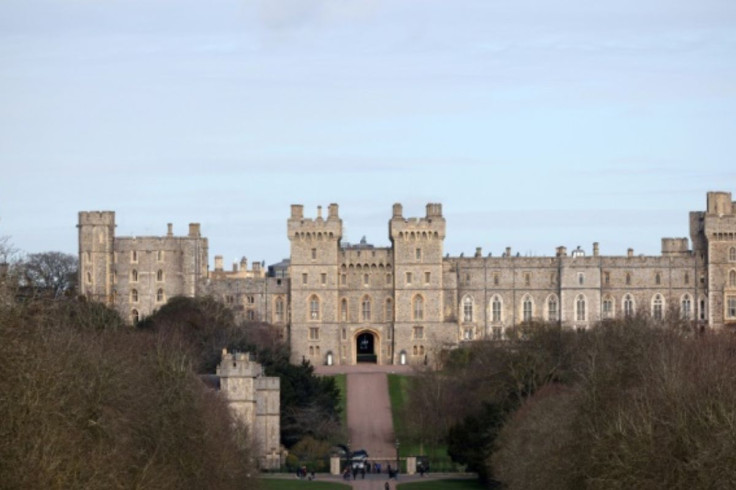Trump's UK Visit Met With Castle Projection Arrests and Viral Epstein-Themed Protest Merchandise - Who Is Behind Them?
Activist groups Everyone Hates Elon and Led by Donkeys organised the displays and banners

On the eve of Donald Trump's state visit to the UK, protesters projected images linking the US president to convicted sex offender Jeffrey Epstein onto Windsor Castle. Thames Valley Police arrested four people over the stunt, which included disputed documents, media clippings and references to Epstein's victims.
The action formed part of a wider campaign that has seen activists distribute Epstein-themed merchandise and unfurl large banners along Windsor's approach routes. The protests have reignited debate about the limits of free expression, the symbolism of using royal landmarks, and the balance between activism and public order.
Castle Projections and Arrests
On 16 September 2025, just hours before Trump was due to meet King Charles III, images were cast onto one of Windsor Castle's towers. They showed Trump alongside Epstein and included material described as a birthday letter, which the White House has since denied as authentic. Police confirmed that four adults were arrested on suspicion of malicious communications, a UK offence covering the dissemination of material intended to cause distress.
According to Reuters, the projection also displayed images of Epstein's victims, along with extracts from media coverage and police reports. Officers described it as a 'public stunt' and said investigations are ongoing.
The Groups Involved
Two activist organisations are reported to have played leading roles. Everyone Hates Elon, a network known for meme-led campaigns and provocative displays, claimed responsibility for banners and projections in Windsor. The group said nearly 1,800 UK-based donors had contributed to the costs of the operation, according to The Daily Beast.
Led by Donkeys, a protest collective best known for its anti-Brexit billboards and projection art on political landmarks, was also linked to the Windsor stunt. They have previously targeted Downing Street and Parliament with similar tactics.
Both groups stated their aim is to keep public attention on Trump's past ties to Epstein and to question his suitability for the ceremonial honours he is receiving during the state visit.
How can you NOT love the Brits 🇬🇧😂🤏
— Tonkertim 🏴🇬🇧🏳️🌈🍻🎶 (@Tonkertim) September 16, 2025
— in short, the British public welcomed DJT to London this am with THIS gigantic banner right outside #Windsor Castle where he is staying with the King this week. Paid for by 1770 people.#Trump #UK pic.twitter.com/HBRY39GynB
Additional Trump image as projected on Britain’s Windsor Castle, Tuesday night. pic.twitter.com/fmQqVuFACI
— ChicMik (@ChyMik) September 17, 2025
WOW! donald trump IS GETTING TROLLED BY THE PROTESTERS IN THE UK WHO ARE PROJECTING IMAGES OF HIM AND JEFFREY EPESTEIN TOGETHER ON WINDSOR CASTLE..
— Rosario Mafra (@MafraRosario) September 17, 2025
THANK YOU UK. EPESTEIN IS WITH trump
Protest Merchandise
Alongside the projections and banners, activists have turned to merchandise as a way to extend their campaign. Items circulating online and at demonstrations include mugs, tote bags and novelty tea plates featuring doctored images of Trump with Epstein. Some bear captions such as 'Never forget' and 'In memory of a terrific guy', echoing phrases attributed to Trump in past interviews.
Campaigners say the products are intended as both satire and a fundraising tool, designed to spread their message while supporting future protest activity.
Trump MERCH available at Windsor Castle 20 miles West of London. Get yours today! pic.twitter.com/KPGCR683QO
— leosun005 (@leosun0005) September 16, 2025
🇬🇧 They’ve been at it all week the sweet baby angels.
— Abhay (@AstuteGaba) September 16, 2025
They’ve put a plaque for Epstein on one of the benches at Trumps golf club, put adverts on bus stops around London, putting Trump and Epstein merch in the Windsor Castle merch shop etc.
UK LOVES TRUMP ? #UK #London… pic.twitter.com/dF5chZwyvb
Why Windsor Matters
Symbolic acts during state visits can shape how events are remembered. The use of Windsor Castle, one of Britain's most recognisable landmarks, has amplified the impact of the protest, drawing international media attention and sparking debate over whether the line between free expression and criminal activity was crossed.
As Trump's visit continues, authorities face the challenge of safeguarding the right to protest while ensuring security at high-profile venues. The Windsor arrests underline how activism, free expression and the law intersect during politically charged occasions, and how protest groups are increasingly turning to spectacle to force their message into the spotlight.
Originally published on IBTimes UK





















